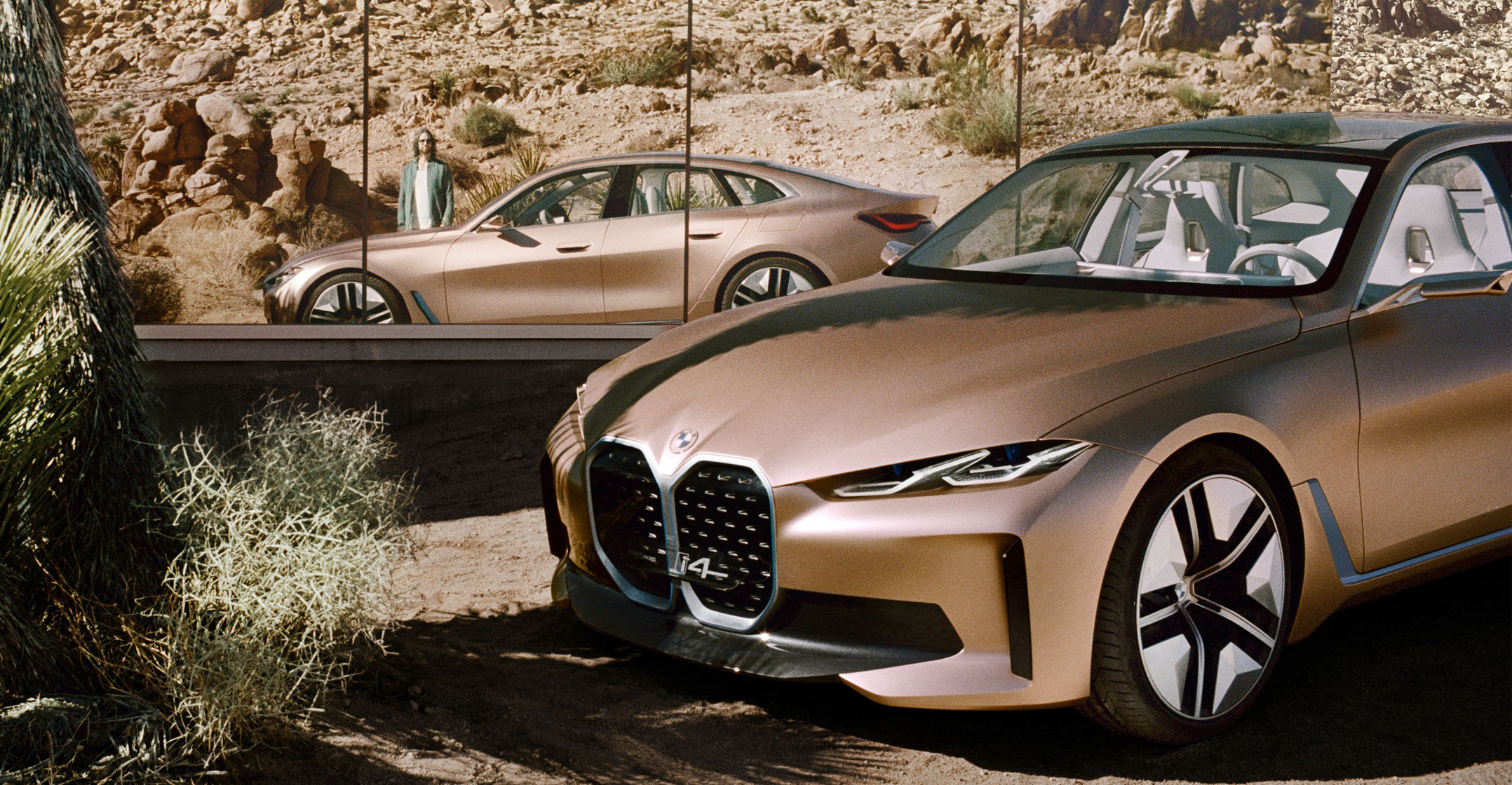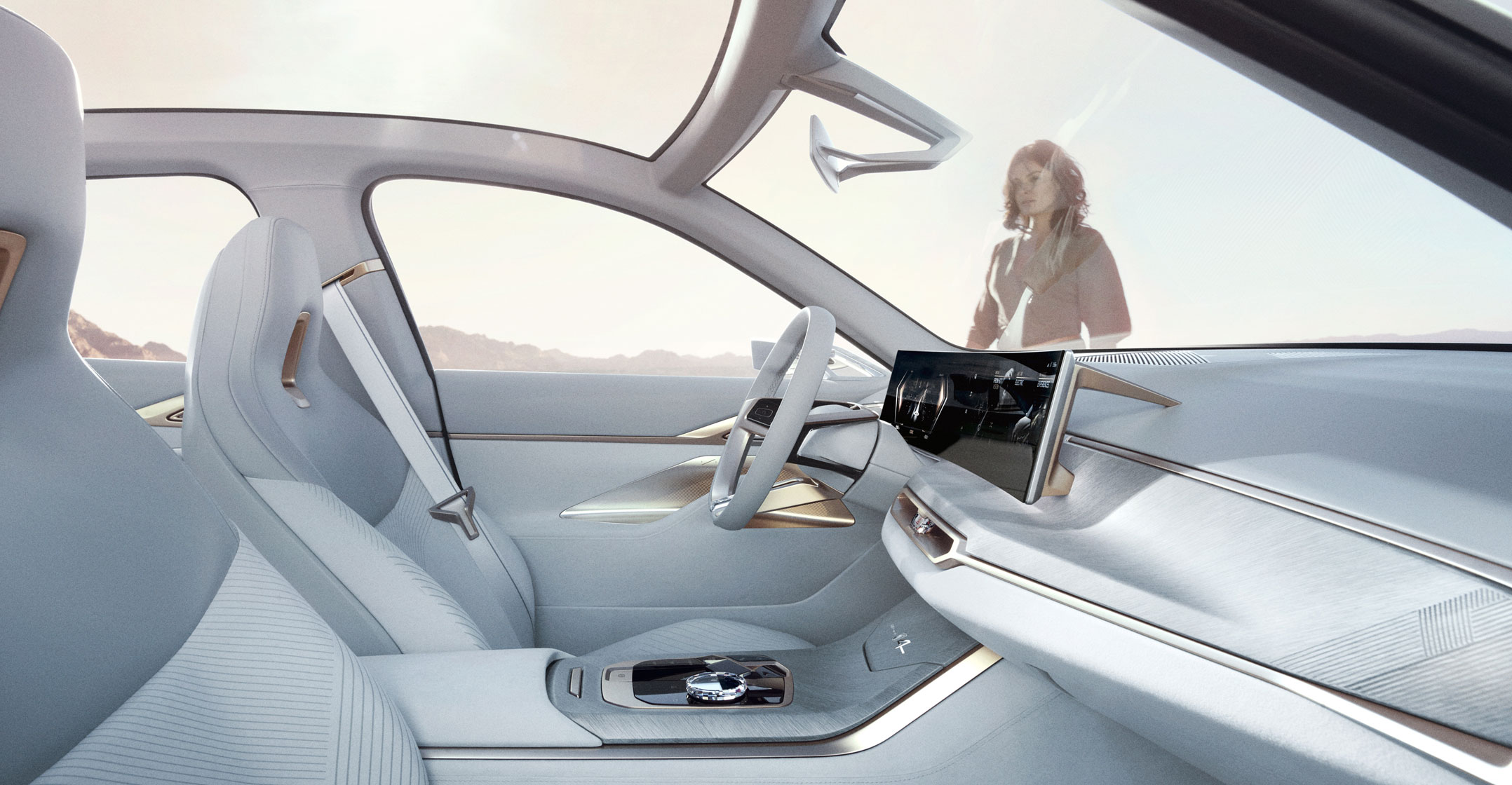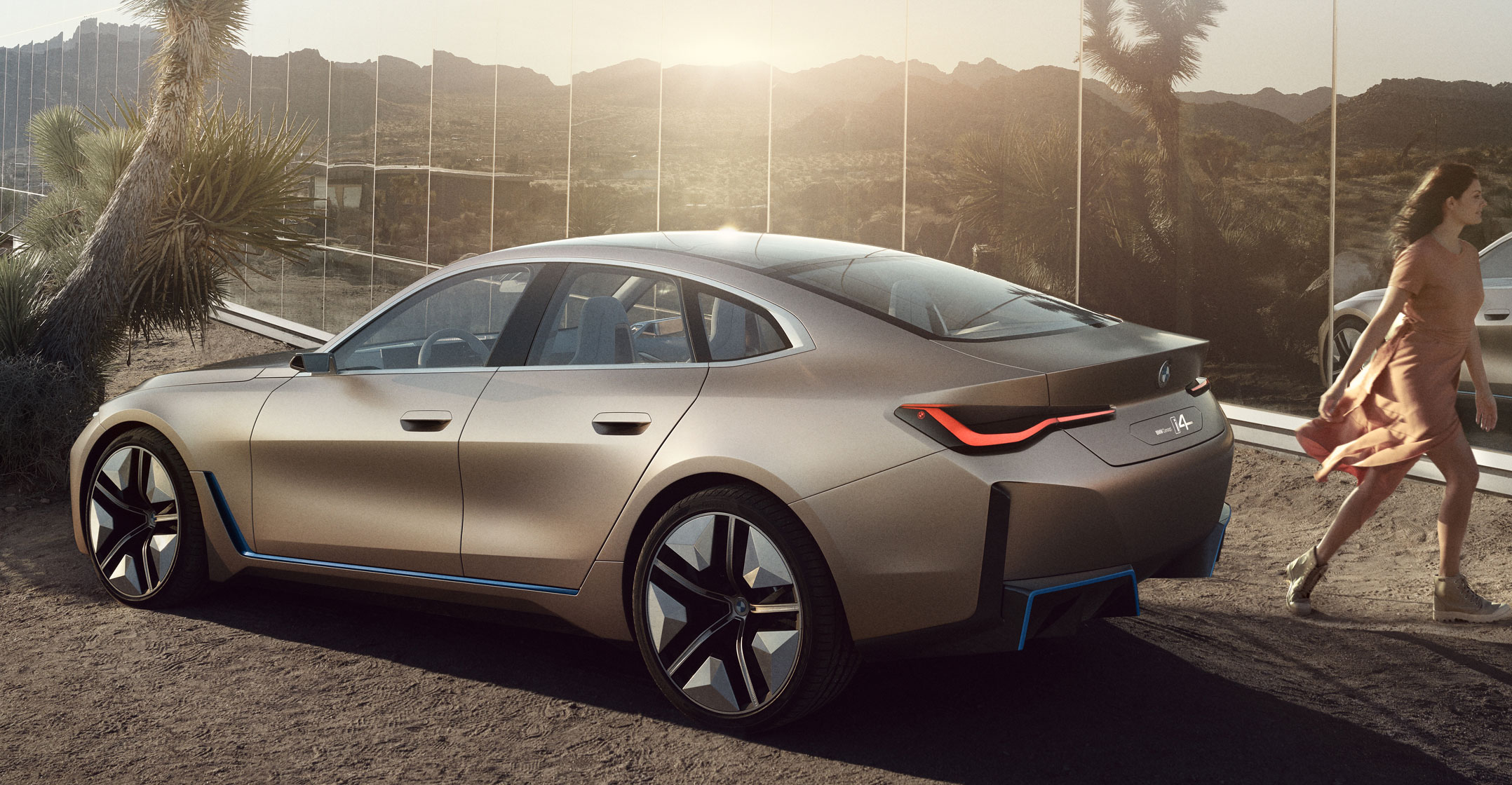 Once the go-to brand for upwardly mobile sedan buyers with a need for speed, BMW is facing pressure from Tesla and its Model 3. The German brand’s answer to the electric threat is a sleek battery-powered car called the i4.
Once the go-to brand for upwardly mobile sedan buyers with a need for speed, BMW is facing pressure from Tesla and its Model 3. The German brand’s answer to the electric threat is a sleek battery-powered car called the i4.
The i4 will slot in next to the SUV-sized iNEXT as BMW’s two flagship electric offerings in 2021. Reminiscent of the company’s bread-and-butter 3 Series, the i4’s low-slung aerodynamic design helps maximise the car’s electric range and sports car-like styling.
BMW’s latest vehicle debut comes at a time when many European car makers are rushing out electric vehicles to meet stiff new emissions standards and blunt inroads by EV leader Tesla. The Model 3 arrived in Europe just over a year ago and became the fifth-best selling sedan overall — electric or combustion — in 2019, behind Audi’s A4 and BMW’s 3 Series, according to data from LMC Automotive.
Originally scheduled to be unveiled at the Geneva Motor Show, the sleek sedan was instead shown in a live-streamed presentation in Munich after the show was cancelled due to coronavirus concerns. The cancellation was the first for the motor show in seven decades.
BMW CEO Oliver Zipse shied away from identifying the Model 3 as the i4’s main target, saying his company’s new car “doesn’t compare to any other brand” in an interview with Bloomberg Television.
“Electromobility comes to the heart of our brand and that is the first real dynamic car from BMW. So any comparison I think wouldn’t give the right message,” he said.
Struggling
But manufacturers like BMW, Mercedes-Benz and Audi are struggling to halt Tesla’s rapid expansion on their home turf, which has been fuelled by the global roll-out of the Model 3, it’s most affordable car. Mercedes, for its part, is planning to debut its EQA compact electric SUV as part of a drive to quadruple the number of plug-in hybrids and fully electric vehicles in its line-up this year.
The battlefield extends beyond Europe to lucrative markets including the US, where German brands long dominated the entry-level sedan segment. Tesla’s Model 3 has overtaken rivals, apparently outselling the once category-defining BMW 3 Series and Mercedes C-Class combined. While the company does not break out sales by region, InsideEVs.com estimates that Tesla sold 158 925 Model 3s in the US last year. That compares with sales of 47 827 for BMW’s 3 Series and 49 153 for Mercedes’s C-Class.
After an early push into electric cars with the compact i3 hatchback and i8 roadster, BMW has shifted to a more conservative strategy, reacting to the challenging economics of these vehicles and consumer push-back against their quirky design cues.

 Battery-supply bottlenecks, technical problems and complex software requirements have hampered efforts to boost sales of electric vehicles packed with the latest electronic gadgetry. BMW also has scaled back plans to use lightweight but expensive carbon-fibre parts across its product range.
Battery-supply bottlenecks, technical problems and complex software requirements have hampered efforts to boost sales of electric vehicles packed with the latest electronic gadgetry. BMW also has scaled back plans to use lightweight but expensive carbon-fibre parts across its product range.
BMW will introduce an electric version of the popular X3 SUV this year, which will be followed by the futuristic iNEXT SUV and the i4 in 2021. The i4’s electric motor delivers as much as 530 horsepower and can accelerate to 100km/h in about four seconds. Its battery will have a range of around 600km. Tesla markets the Long Range version of the Model 3 at 520km.
Munich-based BMW will manufacture the i4 at its headquarters factory along with traditional models with petrol engines, which will allow it to adjust production flexibly and in line with market swings. This year, BMW plans to sell about 140 000 electrified cars in Europe, with about 40 000 being purely electric.
The three-pronged approach of producing electric, hybrid and combustion engines, which mirrors the strategy of arch-rival Mercedes, has yet to win much gratitude from investors as Tesla’s market value surged past BMW and Mercedes parent Daimler. At US$136.9-billion, the electric-car leader is currently worth more than both of its German rivals combined. — Reported by Oliver Sachgau and Christoph Rauwald, (c) 2020 Bloomberg LP

